Travel requirements for entering Australia
Meeting attendees are responsible for arranging their own travel and to ensure that they have the documentation required for entering Australia.
Australian Visa and Passport requirements
Most people will need to obtain a visa before travelling to Australia. Australian passport holders do not need a visa to enter Australia and New Zealand passport holders can travel to Australia without a visa and obtain a visa on arrival at the airport.
You will need the correct visa to come to Australia and you will need to get your visa before you travel to Australia. There are many different visa types available depending on the main purpose of your visit and the country in which you reside. You should apply for a visa to visit Australia, and the main purpose of your visit will be ‘attending a conference or expo’. The type of visa that will be available to you is dependent on your country of residence.
You can find information on entering Australia on the Australian Government Department of Home Affairs website.
Members from the following countries should apply for an eVisitor visa (subclass 651). This visa is free.
- Andorra, Belgium, Croatia, Denmark, Estonia, Finland, France, Germany, Iceland, Luxembourg, Netherlands, Norway, Poland, Portugal, Slovakia, Slovenia, Spain, Sweden, Switzerland.
Members from the United States, Canadian and the Republic of Korea will need to apply for either:
- Business visitor stream visa (subclass 600). Cost AUD150; or
- Electronic Travel Authority (subclass 601). There may be an application service charge of AUD20. You cannot apply for an ETA online; however, some travellers can apply for an ETA using the Australian ETA app (Android or iOS).
Members from the following countries will need to apply for a Business visitor stream visa (subclass 600). Cost AUD150.
- Angola, Argentina, Armenia, Belarus, Benin, Brazil, Cambodia, Cameroon, Central African Republic, Chile, Columbia, Costa Rica, Ecuador, Ghana, Guatemala, Guinea, Kenya, Republic of Korea, Liberia, Madagascar, Malawi, Mauritania, Mexico, Namibia, Nigeria, Peru, Sierra Leone, South Africa, South Sudan, Suriname, Tajikistan, Tanzania, Togo, Tonga, Uganda, Uruguay, Uzbekistan, Viet Nam, Zimbabwe.
Please note that the visa application process can be lengthy and all participants are requested to start the process well in advance of the meeting.
If you require an official letter of invitation for visa puposes, please contact the Secretariat at GB30@gbif.org.
Insurance
Meeting attendees are advised to ensure appropriate travel insurance for travel to Australia.
Entering Australia
Covid-19
All meeting attendees are requested meet the general health requirements for entering Australia and to check the Department of Home Affairs website for the most up to date COVID-19 information.
Biosecurity
Australia has strict biosecurity and border controls in place to protect Australia’s environment, economy, health and wellbeing and security. To avoid issues, penalties, fines and to reduce the risk experiencing delays on arrival to Australia, please check Australia’s biosecurity and border controls for information about what goods you can and cannot bring into Australia.
Arriving in Canberra
About Canberra
Canberra is the capital of Australia and occupies part of the Australian Capital Territory (ACT), in south-eastern Australia; Canberra is situated inland between the cities of Sydney and Melbourne. Canberra was founded as the Capital City of Australia, and the seat of Australian Government in 1913.
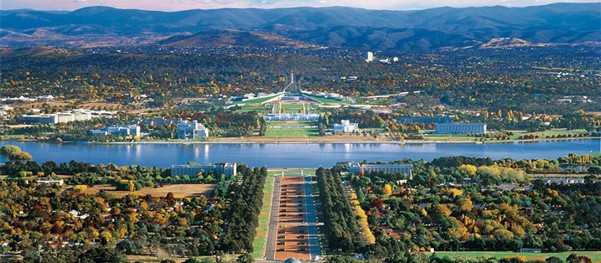
Canberra is located on the lands of the Ngunnawal people, the Indigenous people of this region and the traditional owners of the land on which we will meet.
Canberra by plane
There are no direct international flights into Canberra and your first Australian destination will be either Melbourne Tullamarine1 or Sydney Kingsford Smith. Canberra is about a one-hour flight from either of these airports.
For members attending the TDWG Conference in Hobart, there are flights from Hobart to Canberra (via Melbourne or Sydney).
It is about a 10-minute drive from the airport to the city centre.
(1 Melbourne international is the easiest airport to arrive into as the domestic terminal is in the same building; in Sydney you will be required to transfer by bus from the international terminal to the domestic terminal.)
Canberra by train/bus
There are two train services per day and several bus services per day from Sydney to Canberra. Trains leave from Central Station in Sydney and arrive at Canberra Railway Station, Kingston, travel time approximately 4 hours; bus services pick up and drop off at the domestic and international terminals at Kingsford Smith Airport and arrive at Jolimont Tourist Centre in the city, travel time approximately 3 hours.
Getting around in Canberra
On arrival at Canberra Airport
There is a dedicated taxi rank for flight arrivals outside the baggage collection area at Canberra airport to transport you to your accommodation. Ubers are also readily available on arrival at Canberra airport.
In Canberra
Getting around Canberra is quick, affordable and easy with its various taxi cabs and ride sharing services. Most attractions and things to see and do are located very close to each other.
Hiring an e-scooter is another great way to get around the city and surrounds. Beam and Neuron, hire out e-scooters with helmets. Road rules and conditions apply so make sure you familiarise yourself with these before you ride.
Canberra has an extensive network of cycle paths and dedicated bike lanes on our main roads making cycling an easy way to get around the city. There are many options available for hiring a bike in Canberra.
The Neighbourhood Guide Canberra City provides lots of information on restaurants, shopping, and cultural experiences in the Inner North including the city, Acton and Braddon.
Hotels
Meeting attendees are asked to organize their own accommodation.
The local organisers recommend booking a room in one of the hotels mentioned below. There is an accommodation quota in some of the hotels listed below. Please make your reservation in advance directly with the hotels by using the specific reservation codes.
As it will be a Parliamentary sitting week in Canberra, we suggest booking early.
We have listed below some nearby hotels which will have available rooms for GB30 attendees. The possibilities of accommodation near the GB30 venues are not limited to these hotels and we suggest having a look at booking.com or AirBnB.
QT Canberra
1 London Circuit, Canberra
Hotel website
Rate: AUD190/night
Reservation website here
Reservation code: GBIF23
Or call reservations team on +61 2 6267 6244 and quote GBIF23
Info: 4 star hotel, 205 rooms, 2km from CSIRO, 25 minutes’ walk; 3.2km from National Portrait Gallery, 6 minute drive
Mantra on Northbourne
84 Northbourne Avenue, Canberra
Hotel website
Rate from: AUD186-429/night
Reservation website here
Reservation code: GB30 (10% discount off best available rate)
Block booking of 25 rooms
Info: 4.5 star hotel, 177 rooms, 1.8km from CSIRO, 25 minutes’ walk; 3.5km from National Portrait Gallery, 7 minute drive
Avenue Hotel
80 Northbourne Avenue, Canberra
Hotel website
Rate: 20% discount for GB2023 attendees; AUD 233-599/night
Reservation website here
Reservation code: GBIF23
Info: 5 star hotel, 213 rooms, 1.7km from CSIRO, 20 minutes’ walk; 3.4km from National Portrait Gallery, 7 minute drive
Burbury Hotel
1 Burbury Close, Barton
Hotel website
15% discount for GB2023 attendees
Reservation code: EVENT
Rate: from $263 (before discount)
Info: 4.5 star hotel, 152 rooms, 6.4km from CSIRO, 10 minutes’ drive; 1.5km from National Portrait Gallery, 18 minute walk
Little National Hotel
21 National Circuit, Barton
Hotel website
15% discount for GB2023 attendees
Reservation code: EVENT
Rate: from $263 (before discount)
Info: 4 star hotel, 230 rooms, 6.4km from CSIRO, 10 minutes’ drive; 1.4km from National Portrait Gallery, 18 minute walk
Brassey Hotel
Belmore Gardens & Macquarie Street, Barton
Hotel website
15% discount for GB2023 attendees
Reservation code: EVENT
Rate from $215 (before discount)
Info: 4 star hotel, 80 rooms, 7.8km from CSIRO, 10 minutes’ drive; 2.3km from National Portrait Gallery, 18 minute walk
A map with the location of hotels and venues can be found here
Venues
15 October
- CSIRO offices - Nodes Training
16 October
- CSIRO offices - Nodes Training and meeting of the Nodes Steering Group
17 October
- CSIRO offices - Global Nodes Meeting
- ALA offices - GBIF committee meetings (Budget Committee, Science Committee and Executive Committee)
- Pollen Cafe - Icebreaker NOTE - NEW VENUE
18 October
- National Portrait Gallery - Governing Board meeting Day 1
- National Museum of Australia - Dinner
19 October
- National Portrait Gallery - Governing Board meeting Day 2 and meeting of the Executive Committee
20 October
- CSIRO Discovery Theatre - Biodiversity Symposium
CSIRO offices
Commonwealth Scientific and Industrial Research Organisation (CSIRO), Clunies Ross Street, Acton, Canberra
The Nodes Training, meeting of the Nodes Steering Group and the Global Nodes Meeting will take place at CSIRO’s Canberra Headquarters on 15-17 October.
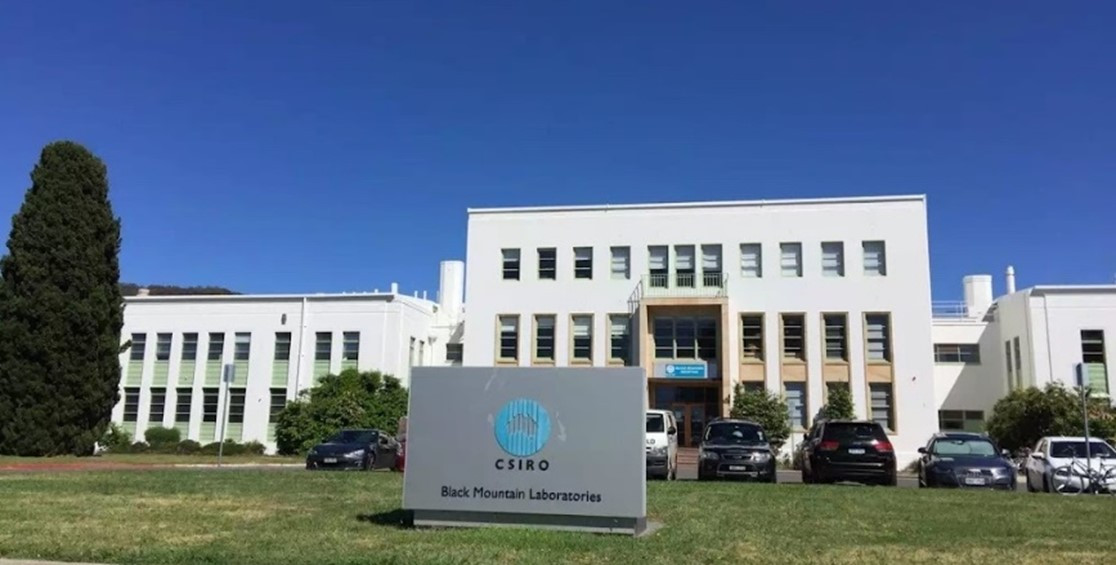
CSIRO is the Australian Government agency responsible for scientific research, and works with industry, government, the research community, and leading organisations around the world to turn science into solutions to address Australia’s greatest challenges.
ALA offices
ALA offices, B279, CSIRO Black Mountain Laboratories, Clunies Ros Street, Acton, Canberra
The meetings of the GBIF Budget, Science and Executive committees will take place at the ALA offices on 17 October.
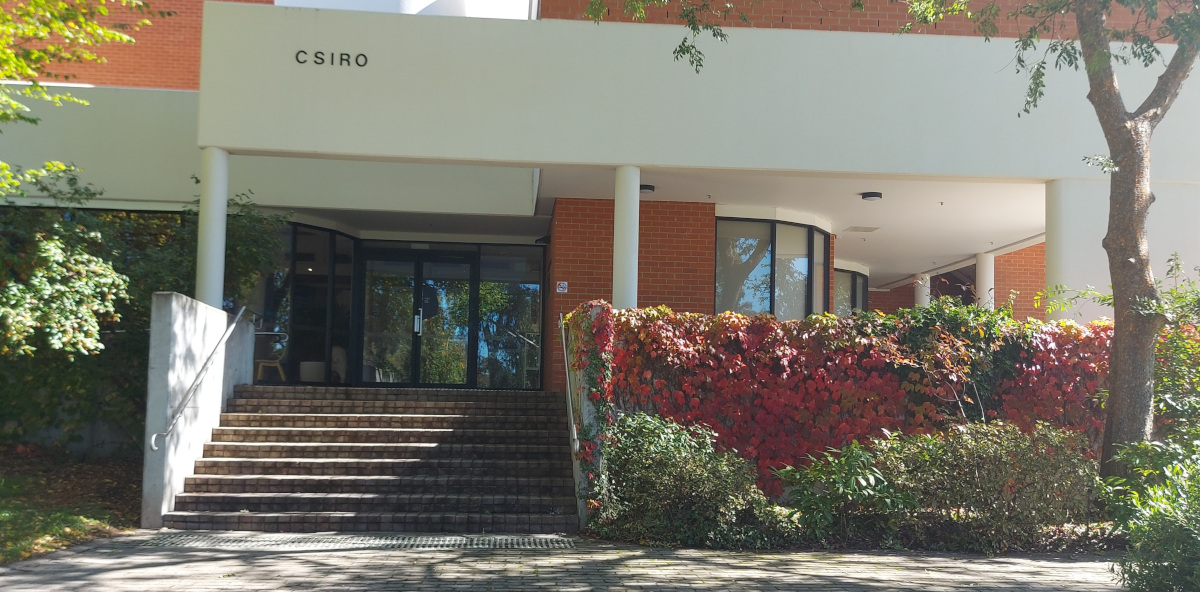
Pollen Cafe
Pollen Cafe, Australian National Botanic Gardens, Clunies Ross Street, Acton, Canberra
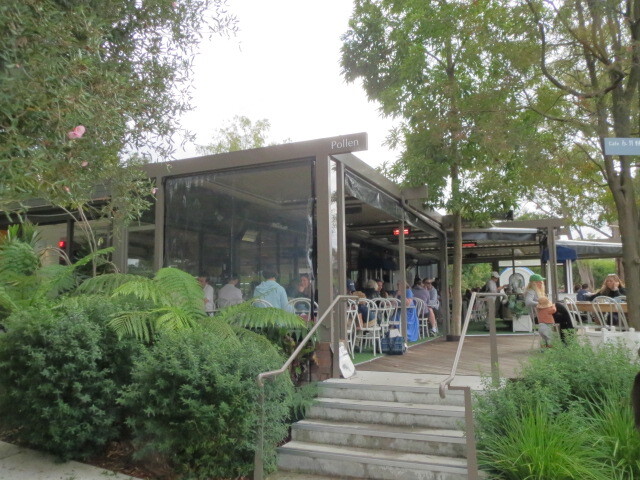
Please note that this event was previously announced as taking place at the National Portrait Gallery, but this has changed to the Pollen Cafe.
Set in the heart of the Australian Botanic Gardens in Canberra, Pollen is a design focused space with an atmosphere of relaxed elegance, surrounded by the beauty of the world’s most diverse collection of Australian plants.
National Portrait Gallery
National Portrait Gallery, King Edward Terrace, Parkes, Canberra
The Governing Board meeting will take place at the National Portrait Gallery on the southern shores of Lake Burley Griffin on 18-19 October.
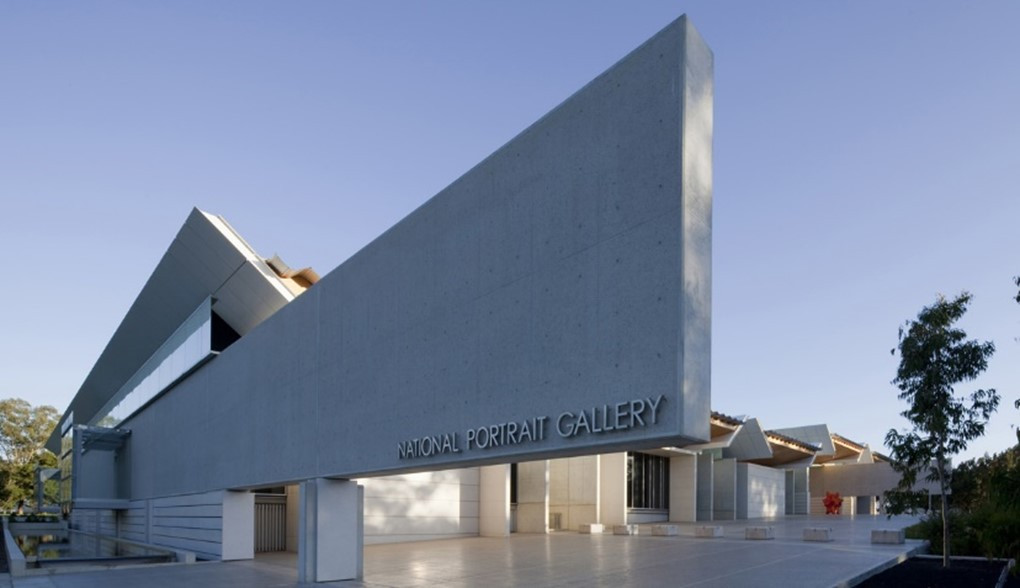
The National Portrait Gallery is one of Canberra’s most remarkable cultural institutions housing portraits of prominent Australians. The gallery is Canberra’s youngest cultural institution having been established only in 1998 and will provide a wonderful backdrop to GB30.
National Museum of Australia
National Museum of Australia, Lawson Crescent, Acton, Canberra
The hosted dinner will take place in the Gandel Atrium, National Museum of Australia on the evening of 18 October.
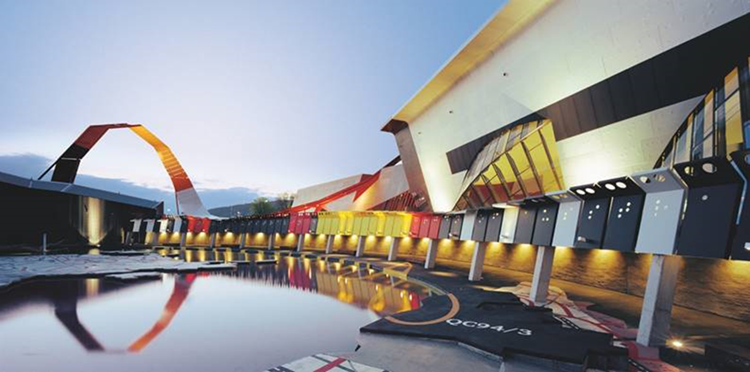
The Museum brings to life the rich and diverse stories of Australia through compelling objects, ideas and events. It focuses on Indigenous histories and cultures, European settlement and human’s interaction with the environment.
CSIRO Discovery Building
CSIRO Discovery Building, North Science Road, Acton, Canberra
The post-GB30 Symposium, ‘The changing face of biological collections - data, science and applications’, will be held in the CSIRO Discovery Building Lecture Theatre on 20 October.
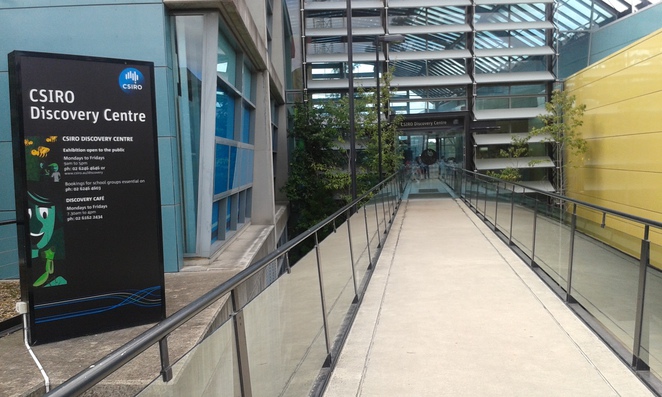
Map
The location of the meeting venues and some of the nearest hotels can be found in the map below or by clicking here.
General information
Electricity
You will require a power plug travel adaptor. In Australia domestic mains power supply is 240V AC and 50HZ. Power plug sockets are Type I.
Health
Check here for updates of the rules linked to COVID-19 and travelling in Australia.
Smoking
Smoking, including e-cigarettes, is banned under ACT Law in the following areas: all enclosed public places including shopping centres, cinemas, office buildings, hotels, buses, taxis, restaurants, pubs and clubs; outdoor eating and drinking areas.
Languages
English is the main language in Australia.
Money
For your trip you will need a product that lets you spend Australian dollars minus the extra international transaction fees. The majority of payments in Australia are made with cards, however it is always a good idea to have some Australian dollars in cash. You will find some vendors who will only accept cash.
Travel money guide: Australia
Currency: $(AUD)
Almost all shops accept cash, credit cards and debit cards.
Most goods in Australia are subject to 10% GST (goods & services tax). This includes things bought in shops as well as dining out. The only exemptions are fresh food such as milk, bread etc. All prices listed include tax, so you should never have to pay more than the advertised price.
Opening hours (for banks and shops)
Most shops will open from 9.00am-5.30pm depending on the type of commerce. Banks usually have shorter opening hours but offer 24-hour access to ATMs.
Personal security
Triple Zero (000) is Australia’s main emergency service number for help from police, fire or ambulance services. Australia also has two other emergency service numbers:
- 112 – can only be dialled on a mobile phone
- 106 – can only be used with a teletypewriter (TTY).
Canberra is one of the safest cities in the world, with a safety score of 86.
More information:
Travel advisory from US Department of State: travel.state.gov/content/travel/en/international-travel/International-Travel-Country-Information-Pages/Australia.html.
Travel Safe Abroad: www.travelsafe-abroad.com/australia/canberra/
Telecommunication and internet (mobile phone networks, internet services)
There is good coverage of 4G and 5G networks in Canberra. Hotels and venues will offer free Wi-Fi connections.
Tips and service gratuities (rules for tipping)
Tipping is not standard in Australia. Service staff in Australia do not rely on tips to make up their income. Leaving a tip for restaurants and other services is a welcomed but not mandatory gesture.
Weather
You can expect pleasant temperatures during the day in October, with a maximum average temperature of 20 °C and minimum temperature of 7 °C overnight. It rains an average of 11 days of the month with a monthly average rainfall of 65mm. If you enjoy blue skies and sunshine, Canberra has 267 hours of sun during October.
As it will be spring and the weather can be unpredictable, we advise you to check the weather in Canberra a few days in advance to adapt your luggage. Bring a rain jacket just in case, layering of clothes is suggested, and bring something warmer for cool evenings.
Tourist information
General tourist information can be found here and here. TripAdvisor can also help you find activities in Canberra.
